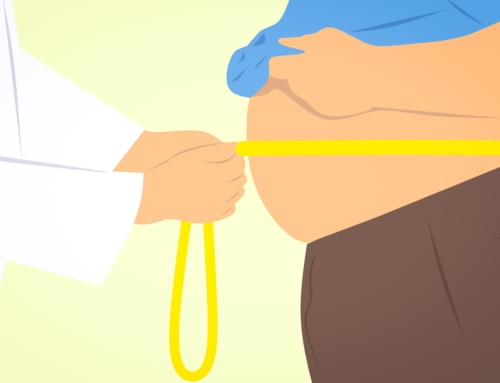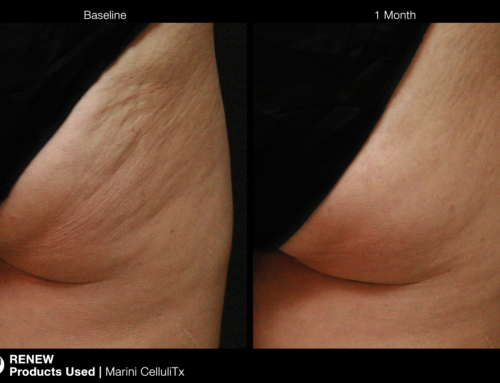Is unlocking your genetic code the answer to your weight problem?
Q: Is there a genetic test that could tell me exactly what I need to eat or not eat in order to lose weight?
Well…. good question! There are companies doing this type of testing right now claiming that if you eat for your genetics this will unlock the mystery of why you can’t lose weight. Our society has a hunger for answers that give us something to blame. I have heart disease – it’s in my genes. I have cancer – it’s in my genes. I am overweight – it’s in my genes. Identify the gene or genes causing all this and do xyz and the mystery is solved. Almost sounds too simple, doesn’t it?
Short answer: It is too simple. The weight loss genetic tests, from what I’ve seen, are taking a very, very complicated issue and trying to make cookie cutter recommendations all under the disguise of “personalized” medicine. You have this genetic variant and they plug in don’t eat this, you need more exercise, or you need more protein, etc. There are too many factors that play into the expression of that gene to make over-simplified recommendations. Now, let’s look at the long answer….
Long answer: Just because you may have a variant in a gene does not mean your disease is occurring solely because of this gene. Our genes are only a small part of our disease. It’s what we surround our genes with, the epigenetics, that help determine if that gene will be expressed.
So, let’s make this as simple as possible. Our genes are like a blueprint for a house we are going to build. If I give this blueprint to a builder and lay it on the ground will a house just pop up? No, of course not. It takes many different workers of many different specialties to make this house a reality. What about errors (genetic variants)? The blueprint may have an error so the structure starts out wrong. Errors may also be made during the building process that aren’t on the blueprint. Some errors may be minor and are never detected. Other errors may cause significant issues. Many times the house is built and errors are undetected until something else happens. Let’s pretend we have an error in the roof. This may have been on the blueprint or it may have occurred during the building process. In this instance it is going to take something else like a rainstorm to bring the roofing error to light. Would we have known about that error without the rainstorm? Probably not. If our house was built in the desert then there is a good chance we would never know about the roofing error so this error would not “express itself”. However, if the house was in Seattle where there is a significant amount of rain then it might be expressed early. So, the expression of the error (this genetic variant) may never be expressed, may be partially expressed or may be fully expressed. It depends on the epigenetics (the location, the climate, the building materials, the contractors, etc) whether that roofing error will be expressed. Even if the blueprint had the error do you see how many other factors played into it being a problem?
Genetic tests are only looking at the blueprint. They do not evaluate the other factors that were required to build that house; the epigenetics. The factors that play a part in the expression of this roofing error included the architect, the climate, the location of the lot, the builder, the quality of the different subcontractors, the roofing materials – again, the epigenetics. To look at a few genes and tell you the reason you are overweight does not pay any attention to your epigenetics. That’s why the studies on the obesity genes are showing even with the genetic variants only 40-70% will actually be obese. That means 30-60% will not by overweight. Why not? Because of all the other factors, the epigenetics, present in that person.
What else can you do to lose weight?
Let’s say you do have a genetic variant that increases your risk of being overweight. First, you can’t do one thing to change that gene so bless and release it. Second, what are your epigenetic factors that are allowing this gene to express itself? Epigenetic factors include what you actually eat, how much you exercise, the balance of the foods you eat, do you have other medical conditions like thyroid, menopause, diabetes, insulin resistance, & depression. How much do you sleep? Do you have sleep apnea? ….And one of the most overlooked areas is what are your emotional epigenetic factors? Examples of emotional pieces include…. What does food mean to you? Do you have low self-esteem that the extra weight provides something to hide behind? Were big family meals some of your happiest childhood memories? Do you feel guilty for eating? What negative self-talk do you do? How do you feel when you try a diet and don’t lose weight? If every bite you take is accompanied by the thought ‘I shouldn’t have this” or “I hate this healthy food” that food now has a negative vibe adding to the emotional epigenetic issue. Now throw in ALL of the epigenetic factors you have identified and these will influence your tendency to gain weight whether you have a gene for this or not.
There are a lot of genetic tests out there that I feel like are extremely useful so don’t dismiss all of the testing available. I hope one day the genetic tests for weight loss may be useful but I have not been impressed with what I’ve seen, at least not yet. It is a hot area of research though so stay tuned.
Take home message: save your money on the obesity genetic tests and start looking at every aspect of your life, your epigenetic factors. Work on each area one by one and focus on a healthy outcome not on weight loss itself.









